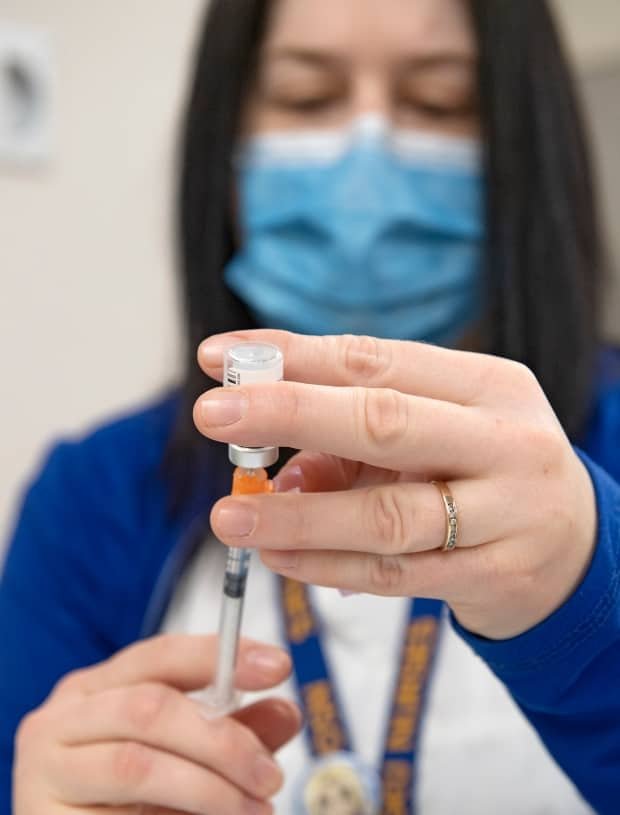Saskatchewan to give COVID-19 vaccine doses up to 42 days apart

Saskatchewan will start to stretch out the time between COVID-19 vaccine doses, as supplies run short.
Second doses of the Pfizer-BioNTech and Moderna vaccine will be administered up to 42 days after the first dose.
Official guidelines say the Pfizer-BioNTech vaccine is meant to be given as two doses, 21 days apart, while Moderna recommends spacing doses 28 days apart.
The National Advisory Council on Immunization (NACI), a body made up of scientists and vaccine experts, say provinces should follow the dosing schedule as closely as possible, but the panel is now offering some wiggle room.
WATCH | Canada's COVID-19 vaccine advisory committee approves delaying 2nd dose
NACI recommends spacing out the doses up to 42 days when necessary.
The recommendation is also supported by the World Health Organization and Canada's chief medical health officer.
"The flexibility provided by a reasonable extension of the dose interval to 42 days where operationally necessary, combined with increasing predictability of vaccine supply, support our public health objective to protect high-risk groups as quickly as possible," reads a statement released Thursday from Dr. Theresa Tam, as well as the provincial and territorial chief medical officers of health.
The same day, Saskatchewan announced it would further space out its doses.
"Saskatchewan will be implementing these recommendations of up to 42 days where operationally necessary in order to deliver more first doses to eligible people," the government of Saskatchewan said in a news release.
WATCH | Dr. Howard Njoo addresses questions on taking first and second dose of vaccine 42 days apart:
Saskatchewan's supply runs short
As of Friday, 96 per cent of the province's vaccines have been administered, and new supplies coming in are not enough to replenish what has been used.
Pfizer has said it will not ship a single vial of its highly effective vaccine to Canada next week as the pharmaceutical giant retools its production facility in Puurs, Belgium, to boost capacity.
Saskatchewan's chief medical health officer, Dr. Saqib Shahab, says it's very reassuring to have the length between doses extended to 42 days.
"When there's a sudden, further disruption that does present challenges," Shahab said during a news conference on Tuesday.
"Most provinces are able to give the second dose of both Pfizer and Moderna within 42 days ... and that becomes very important with the disruption of shipment."
Scott Livingstone, the CEO of the Saskatchewan Health Authority, agreed.
"It does mitigate some of the decreased doses coming in. We also know through contact with the federal government that once the Pfizer plant is back online, they'll be increasing our shipment," Livingstone said during Tuesday's news conference.
Livingstone said the new shipments coming in will be allocated for an individual's first and second shot.
WATCH | Canada facing delays in vaccine rollout
More vaccines on the way
Another shipment of vaccines will arrive in Saskatchewan on Feb. 1, says the government.
The province is expecting 5,850 doses of Pfizer-BioNTech's vaccine and 6,500 doses of Moderna's vaccine.
The government says they will be distributed to the Far North West, Far North East, North East and Central West.
A second shipment of 7,100 doses from Moderna will arrive on Feb. 22, and will be distributed to the Far North East, North East and Central East.
"Our immunization team is trying to be as nimble as possible knowing that we could at any time through the pandemic receive more vaccines, but also then having to readjust our targets and still focusing on the most needy in this Phase 1, and we will continue to do that as vaccine supply keeps coming back up," Livingstone said.

 Yahoo Finance
Yahoo Finance 